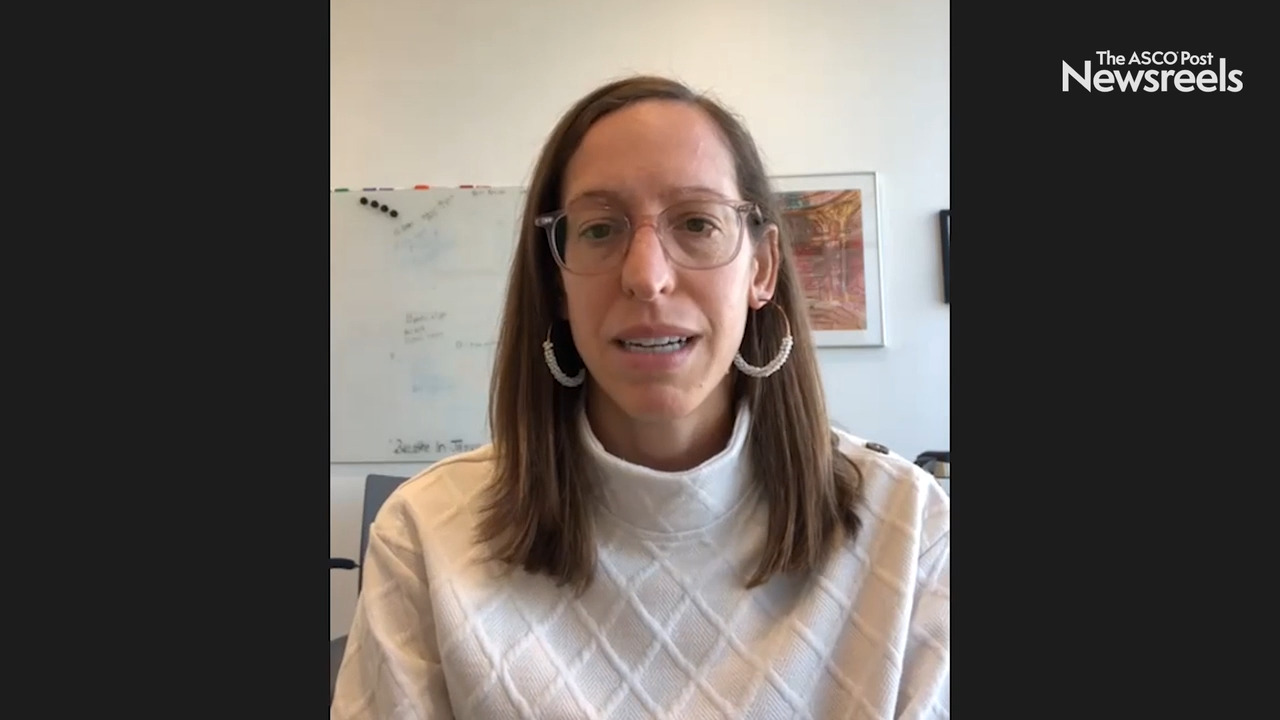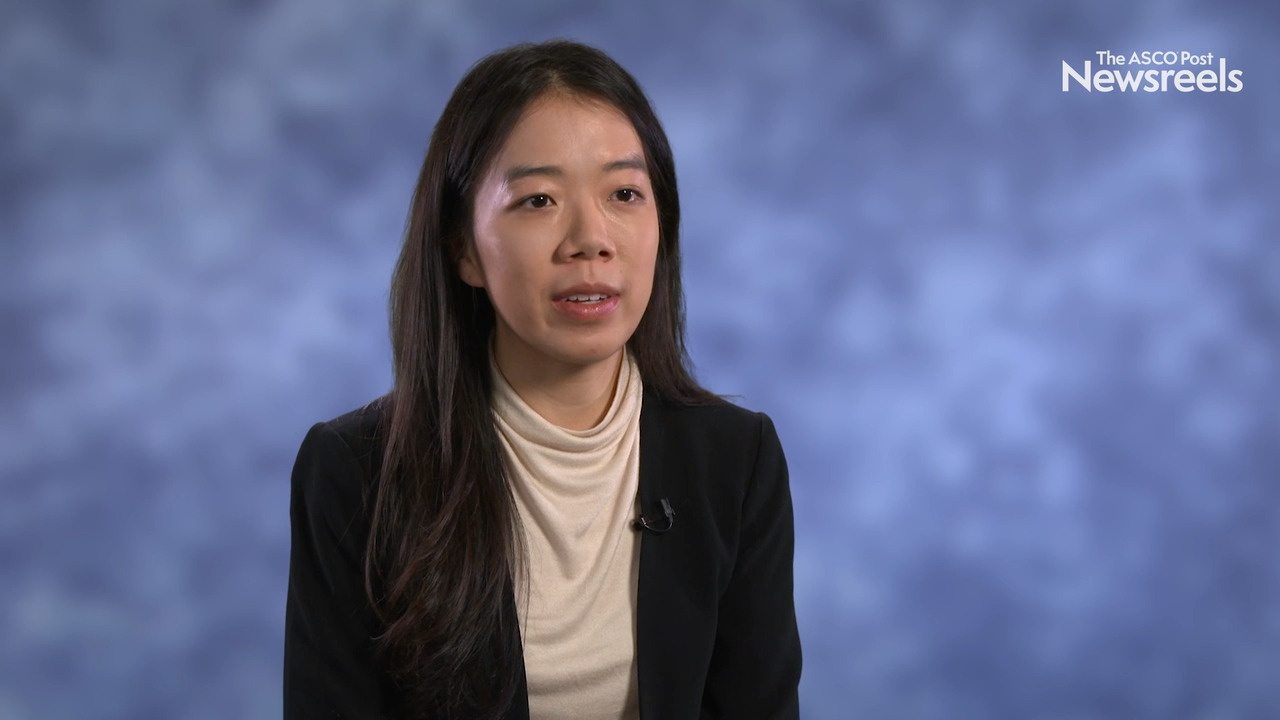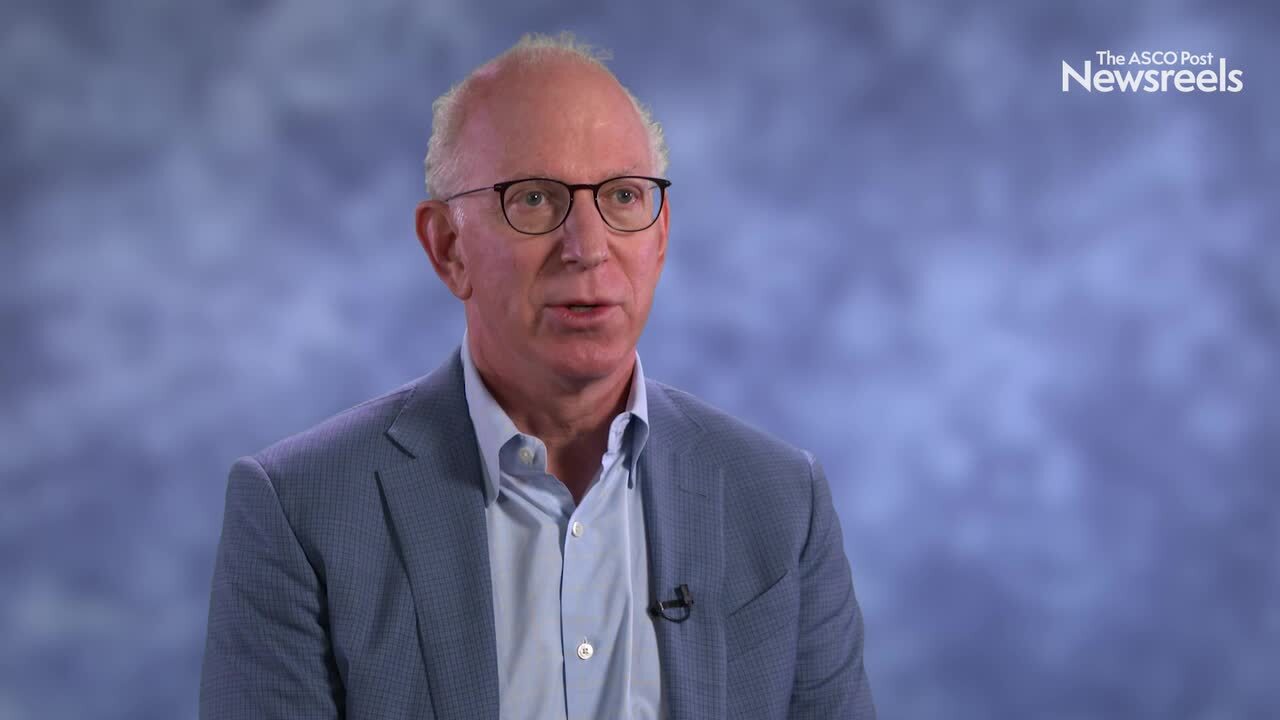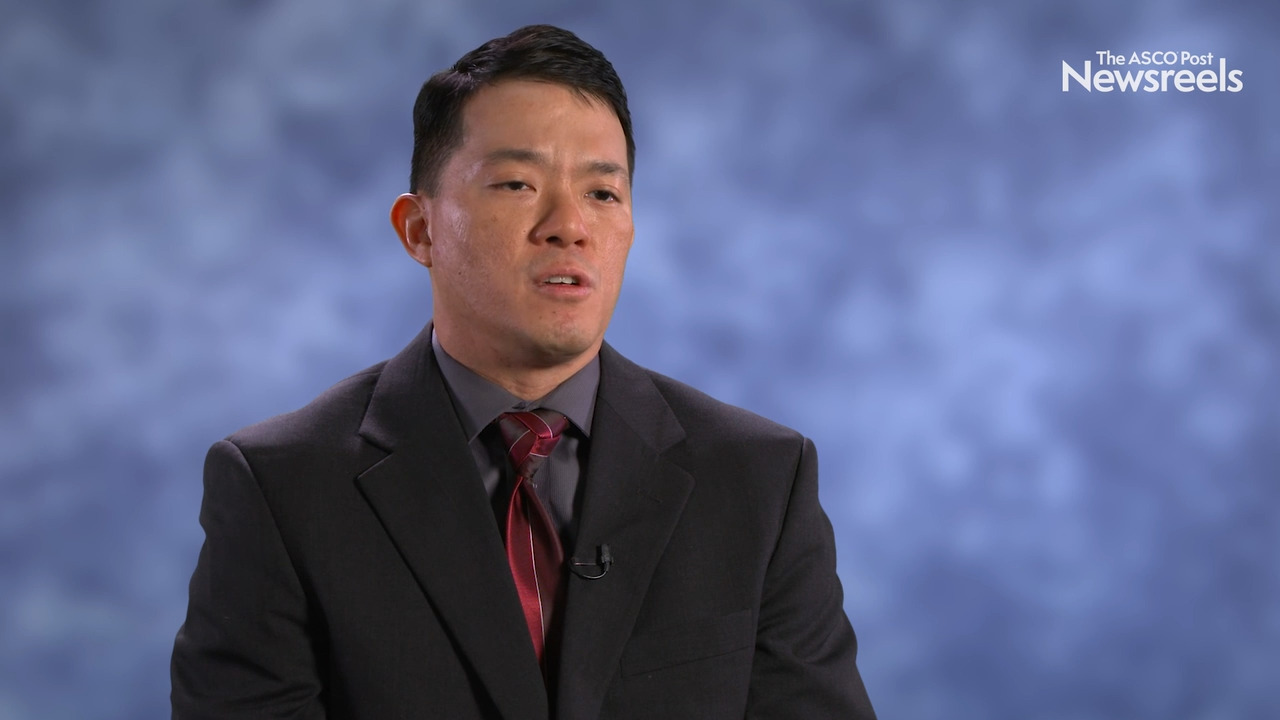Aadel A. Chaudhuri, MD, PhD, on Personalizing Treatment for Oligometastatic Cancer
2021 ASTRO Annual Meeting
Aadel A. Chaudhuri, MD, PhD, of Washington University School of Medicine in St. Louis, discusses circulating tumor DNA, which has the potential to better personalize treatment for patients with oligometastatic cancer and help clinicians determine whether to offer systemic therapy alone or curative-intent local consolidative therapy.
The ASCO Post Staff
Erin Murphy, MD, of Cleveland Clinic, discusses new data that show no apparent difference in cognitive performance up to 2 years post-treatment among adults with low-grade glioma who were treated with concurrent radiotherapy and temozolomide (Abstract 3258).
The ASCO Post Staff
Diana D. Shi, MD, of Dana-Farber Cancer Institute and Brigham and Women’s Cancer Center, discusses studies being planned and already underway to test BAY 2402234, a de novo pyrimidine synthesis inhibitor that possibly could be used clinically to target IDH-mutant gliomas and may act as a tumor-selective radiosensitizer (Abstract 167).
The ASCO Post Staff
Benjamin Movsas, MD, of the Henry Ford Cancer Center, discusses results from the NRG Oncology/RTOG 0815 study, which explored dose-escalated radiotherapy alone or in combination with short-term hormonal therapy for patients with intermediate-risk prostate cancer. In addition to clinical outcomes, Dr. Movsas discusses patient-reported results in the study that may help patients make informed decisions when choosing between these treatment options (Abstract 4).
The ASCO Post Staff
Howard M. Sandler, MD, of Cedars-Sinai Medical Center, discusses whether hypofractionation can be safely employed in the post-prostatectomy setting and the role of short-term hormone therapy in the management of intermediate-risk prostate cancer with radiotherapy.
The ASCO Post Staff
Daniel J. Ma, MD, of the Mayo Clinic Alix School of Medicine, discusses results from a phase III study of patients with HPV-associated oropharyngeal squamous cell carcinoma. Comparing a 2-week course of de-escalated adjuvant radiation therapy with the standard 6-week course, investigators found that the shorter treatment appeared to have less toxicity, higher quality of life, and similar disease control as the longer standard-of-care treatment (Abstract LBA1).





